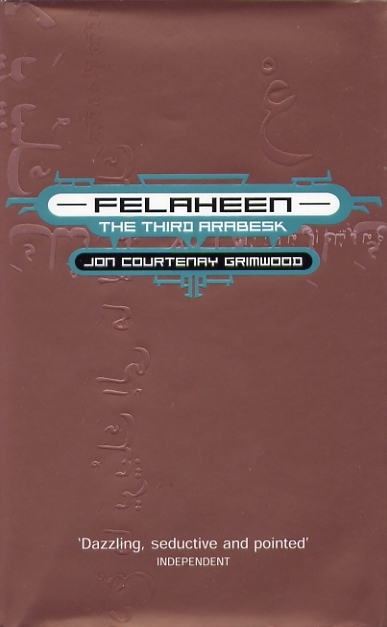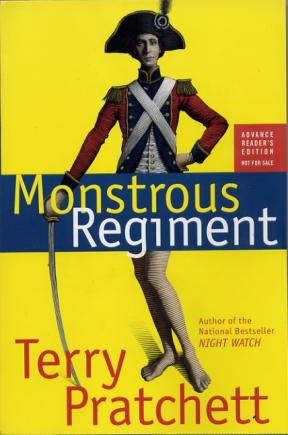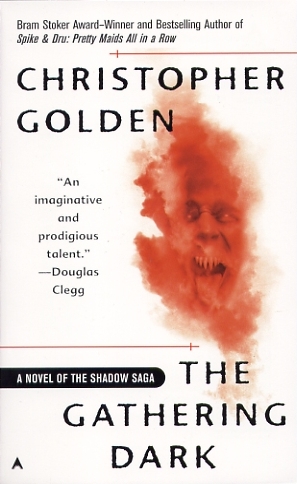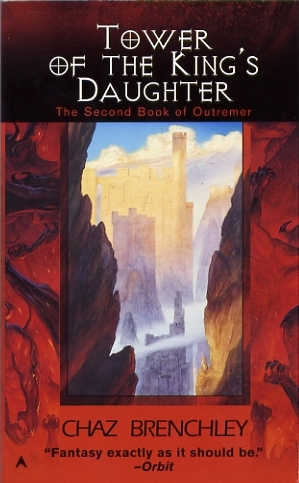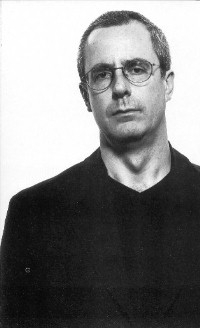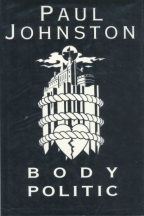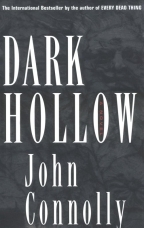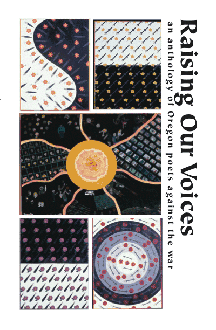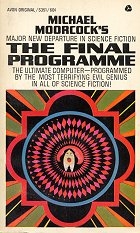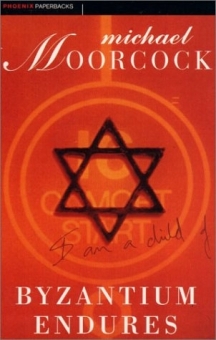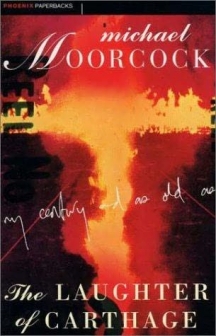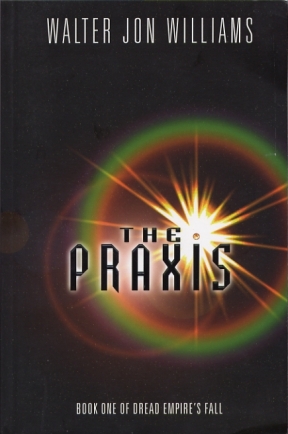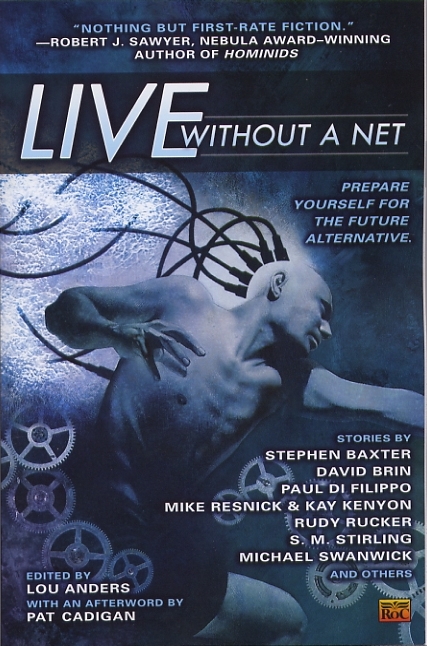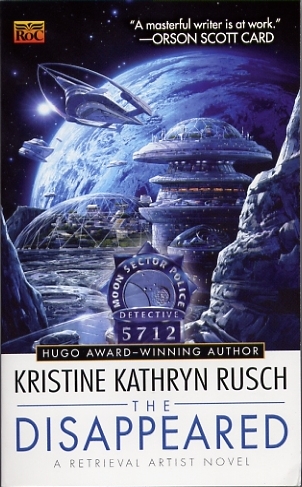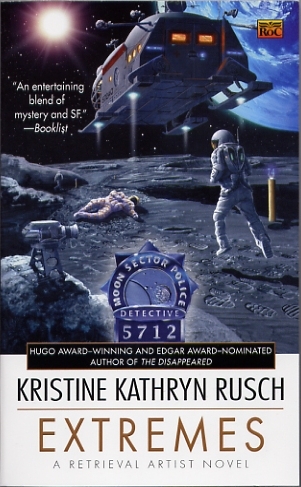From the Glasgow herald
comes this fascinating article. Cannot reveal
wherefore I obtained it! Here's their URL,
however: http://www.theherald.co.uk/
HEADLINE: Partners in
crime;They traded in death; then one of them
ended up staring it in the face.
Writers John Connolly and
Paul Johnston tell the true story of an
unlikely friendship
BYLINE: Teddy Jamieson
At the start of this year, Irish crime
writer John Connolly had what he might call a
Brian Carroll moment. Bear with him, he can
explain. "I had this friend at school when I
was really young called Brian Carroll," he
tells me in his soft Dublin accent, "and
Brian Carroll was one of these guys who would
trip on new fallen snow and hit the bed of
nails underneath that somebody had left
there. He was just a desperately unfortunate
guy. And I broke my arm when I was about
five, going on six, and I was in Our Lady's
Hospital in Dublin and in through the door
after my operation came Brian Carroll. He'd
been hit by a fire engine. And I realised
that this was setting the pattern for my life
- that any time it looked like I was going to
get any sympathy there would always be some
bastard who would get more than I would."
So, back to the start of this year when
the latest ''bastard" turned out to be none
other than Connolly's friend and fellow crime
writer Paul Johnston. A Scot, Johnston spends
half his life in his adopted homeland of
Greece, but today he is sitting beside me in
Edinburgh's Cafe Royal, listening to
Connolly's story. It was sympathy Connolly
was after when he gave Johnston a call last
December. He had been out on his bicycle in
Dublin, and an accident with a van had sent
him flying. He needed a plate in his right
arm and was left with a nasty scar running
pretty much from his wrist up to his elbow
joint. It still looks pretty livid six months
on. Anyway, he phoned his friend, who in turn
told him that he hadn't been well either.
"So, I thought, 'Yeah, Scottish whinger, he's
got a head cold or something.' I'm saying,
'I'm going to have a scar four inches long.
I'll be ruined for life. And he says, 'Well,
I've just had a kidney taken out.' And I
thought, it's bloody Brian Carroll all over
again." And at that Connolly and Johnston
start laughing. For the hundredth time this
morning.
Sunlight is pouring through the big
windows of the Cafe Royal, swilling around
the almost empty bar. The atmosphere feels
bottled - distilled, even - but at our table
the only spirit on show is in the
conversation. Johnston, 45, is tall, thin,
grey-haired and tanned, and not obviously an
ill man. You might imagine he's an academic.
Connolly, 35, is younger, burlier,
gym-bulked; a natural comic. They are not the
most likely pair of multiple-murderers.
Johnston comes from authorial stock; he is a
Fettes old boy and an Oxford graduate who has
moved from writing thrillers set in a future
Edinburgh to detailing the adventures of a
half-Scots, half-Greek private detective.
Connolly comes from a Dublin council estate
and writes American thrillers with a hint of
the supernatural. Yet they work as a team,
travelling around the country talking about
the not-so-gentle art of literary murder and
whatever else takes their fancy.
What started as a marketing ploy has
deepened and developed into friendship, and
that is what I have come to talk to them
about. It is not the easiest thing to do.
They are blokes, so talking about feelings is
not their strong point. They hum and haw when
I try to draw out the shape their friendship
takes. "I haven't really thought about this
at all,' says Johnston. When I keep pressing,
Connolly feels the need to remind me: "I'm
not going to marry him."
They bonded over the blokey stuff:
favourite writers, favourite movies,
favourite music. The last time they met was
to go to see Neil Young in London, and they
have both just come from a record shop. "He
keeps the progressive rock section in Fopp
going," Connolly says of Johnston. "Someone
has to."
"A hell of a lot of people, actually,"
Johnston replies, a smidgen defensively. "And
no, I do not buy Emerson, Lake and Palmer
albums."
This is how they talk, in pure banter,
constantly verbally elbowing the other in the
ribs. The pub is their natural meeting place
but today we are all on soft drinks, two of
us from choice, one out of necessity. Maybe
it is because the pair of them make a living
out of murder, even if only vicariously, but
the darkest subjects seem the stuff of comedy
- and at this moment in time the conversation
could not be darker.
The reason for the removal of his kidney,
Johnston explains, was "a fairly nasty
disease of the internal organs." He pauses
before he says it, "cancer", and then he
spits it out as briskly as he can, getting it
out there, maybe getting it out of the way.
The diagnosis of a lump in his kidney - "as
it turned out a very advanced lump indeed" -
was hardly the best of New Year gifts. "I'd
had kind of niggles and eventually they
finally managed to track it down." Within a
few days he was operated on. "They have a
very different attitude to illness in Greece.
I don't know if it is Mediterranean
impatience or whatever, but if they believe
something is wrong then they get you in and
sort you out. I'd like to imagine that would
happen here too, but I haven't had a totally
straight answer to that yet."
As soon as he learned of Johnston's
ailment, Connolly was on a plane to Greece.
Johnston, however, was out of hospital and
back on his feet and ready to act as
Connolly's tour guide to Athens. "He didn't
look well," says Connolly. "And I don't want
to indulge in political stereotypes but you
know that thing about tight-fisted Scots -
which is not true because they are the most
generous people I've met - but he hadn't got
his hair cut because he figured if he was
going to have chemo there was no point in
actually spending money on a haircut."
"That is totally false," Johnston
interjects.
"So it had grown kind of long," continues
Connolly, unfazed.
"I looked like Robert Plant," says
Johnston.
"In your dreams. You looked like an ageing
roadie for a new romantic group."
"That is totally untrue. I had long hair.
I had longer hair because I had been sick and
I wasn't able to get to a barber. That is a
complete invention on his part."
What else would you expect from a
writer?
For Johnston, writing was the family
business. His father, Ronald, a former
merchant navy captain, wrote maritime
thrillers in the seventies. Johnston
remembers their house was always full of
authors: "I can remember being up a treehouse
- I had built a treehouse 60ft above the
ground in the garden - and suddenly I saw
these people down below and it was the old
man and Hammond Innes." Everyone else's
father was a farmer or an army officer,
Johnston recalls, so writing seemed different
and glamorous. "But it wasn't something I
thought at that stage that I wanted to do
particularly."
After a stint at Melville College,
Johnston was dispatched to Fettes to take his
place alongside the future captains of
industry and government. For some "obscure
reason" he had got it into his head at the
age of six that he wanted to study ancient
Greek. Not a common study option "so I ended
up in Colditz in north Edinburgh". He says
now he had a reasonable time there, yet one
of his first literary acts was to blow the
place up in Body
Politic, his crime debut.
Paul Johnston and John Connolly both add
a bit of oddness to their mysteries.
At 18 he finally made it to Greece,
spending six months as a "cack-handed"
tourist guide. Suddenly ancient Greece didn't
seem quite so interesting. "A switch just
turned in my brain. I got turned on to modern
Greece in all its aspects." So much so that,
after Oxford and an abortive career in
shipping that ended when the company he
worked for ran aground, he decamped to Greece
in 1987 with his Norwegian wife Vigdis (his
daughter Silje was born a year later) and
started writing, firstly about Scotland but
latterly about the place where he now spends
half his year. "It sounds kind of fatuous,
but in attitude the Celts and the
Mediterranean mentalities are not that
different," he says. "For a start there's a
melancholy. The Greeks are a melancholic
people, which I'm always attracted to because
it's tuned into my own classic Scots black
moods. But, of course, they are also very
lively. I mean, they don't get paralytic in
the pub like us, but they do dance on the
tables."
Connolly, by contrast, grew up in one of
the less savoury parts of Dublin, a council
estate called Rialto, a rough mix of big
towerblocks and lower-middle -class housing.
"It's not really on the tourist trail," he
admits. "The first girl I ever dated properly
was from Rathfern, a nice area in south
Dublin, and her mother wouldn't let her drive
the car into Rialto because she's heard all
these things. I said, 'As a point of
principle you should bring your car in.' So
she did, and all the windows got broken."
Heroin arrived in Dublin in the 1970s.
Going to school in the morning, Connolly
would walk to a crowded bus stop but be the
only one to get on board when the bus
arrived. "Everybody else was there waiting to
score. The police couldn't really move you on
if you said, 'Look officer, I'm actually
waiting for a bus."'
He left school and started work with the
local authority. He told them at his
interview that he wasn't much good with
figures so they stuck him in the accounting
department. He lasted for three and a half
years, then threw it all up, cashed in his
pension fund and went to college, eventually
becoming a journalist.
But he really wanted to be an author. He
always had. It took him five years to write
his first book, Every
Dead Thing, and he immediately marked out
his territory by setting it in America - in
Maine, to be exact. "When it came to writing
the books, I realised I didn't want to set
anything in Ireland," he says. "I was very
consciously reacting against a tradition of
Irish writing which I hated."
Now there's a statement, I say. "It goes
down really well in Dublin," Johnston chips
in. Connolly, though, feels he had nothing to
say about his homeland. "The themes I was
interested in exploring - compassion, living
and dying, the nature of justice - I saw all
those things in crime fiction." More
specifically, in American crime fiction.
The pair of them met about four years ago.
They were lined up to do some bookshop gigs
together, so Johnston thought he should make
the effort to get acquainted. "I don't think
John had that feeling at all," he adds.
"I'm not like Paul," Connolly replies. "I
don't particularly like spending too much
time with other writers. So I was a bit
wary."
Even when they did meet, friendship was
not a certainty. "There was a degree of
chemistry, although I think it was bad
chemistry at the beginning in some ways,"
says Johnston. But over time companionship
turned to something more lasting.
Now I wonder if Johnston's illness has
changed the nature of their friendship. "I
think, like most people when you hear those
words," says Connolly, referring to the big
C, "your initial thing is to see somebody
carving your name on a stone. Your instinct
is to kind of step right the way round the
course, and then you kind of think, well, the
one thing I would hate people to do would be
to step lightly around me and treat me like I
was a patient. You've got to go on the way
you were going on before."
"You really find out who your friends
are," says Johnston, "and who are the people
in your family who can cope. And some people
can't cope because they look at a person who
they thought was perfectly healthy and then
suddenly isn't. There are people whom I've
known for years who haven't been able to
cope, and there are people like John whom I
have known for less time who have coped
magnificently and have been incredibly
supportive. We'd established a close
friendship anyway, but this inevitably added
a new dimension to it."
Of course, such an illness does not end
with an operation. His cancer, Johnston says,
has been running his life for the past six
months. Since the operation he has been
having chemotherapy. Writing, inevitably, has
had to take a back seat; he has been too busy
with the business of living. Still, he is
hoping ultimately his work will benefit.
"I've learned a lot about myself and about
other people. One would hope it will make you
a better human being as well, though it makes
you very bad tempered, doing chemo."
But will it make you a better writer? As
someone who makes a living from writing about
life and death, how will a life-or-death
experience change Johnston's approach? Too
early to tell for certain, he says - but he's
sure it will. "When you lose your mortality
cherry - as another writer friend
paradoxically described it - your view of
this kind of thing changes. I'm sure that
when I eventually get back to writing I won't
handle these kinds of issues in the same
way.
"I've always been fascinated by death. I
think it's one of the reasons I became a
crime writer. And having a close experience
of that kind is fantastic. You couldn't pay
money for that. Well, you wouldn't unless you
were desperate. If you are going to give an
organ away, at least get some money for
it."
That sets the pair of them off again. Off
into the afternoon. Laughing in the face of
death. Brian Carroll would be proud of
them.
